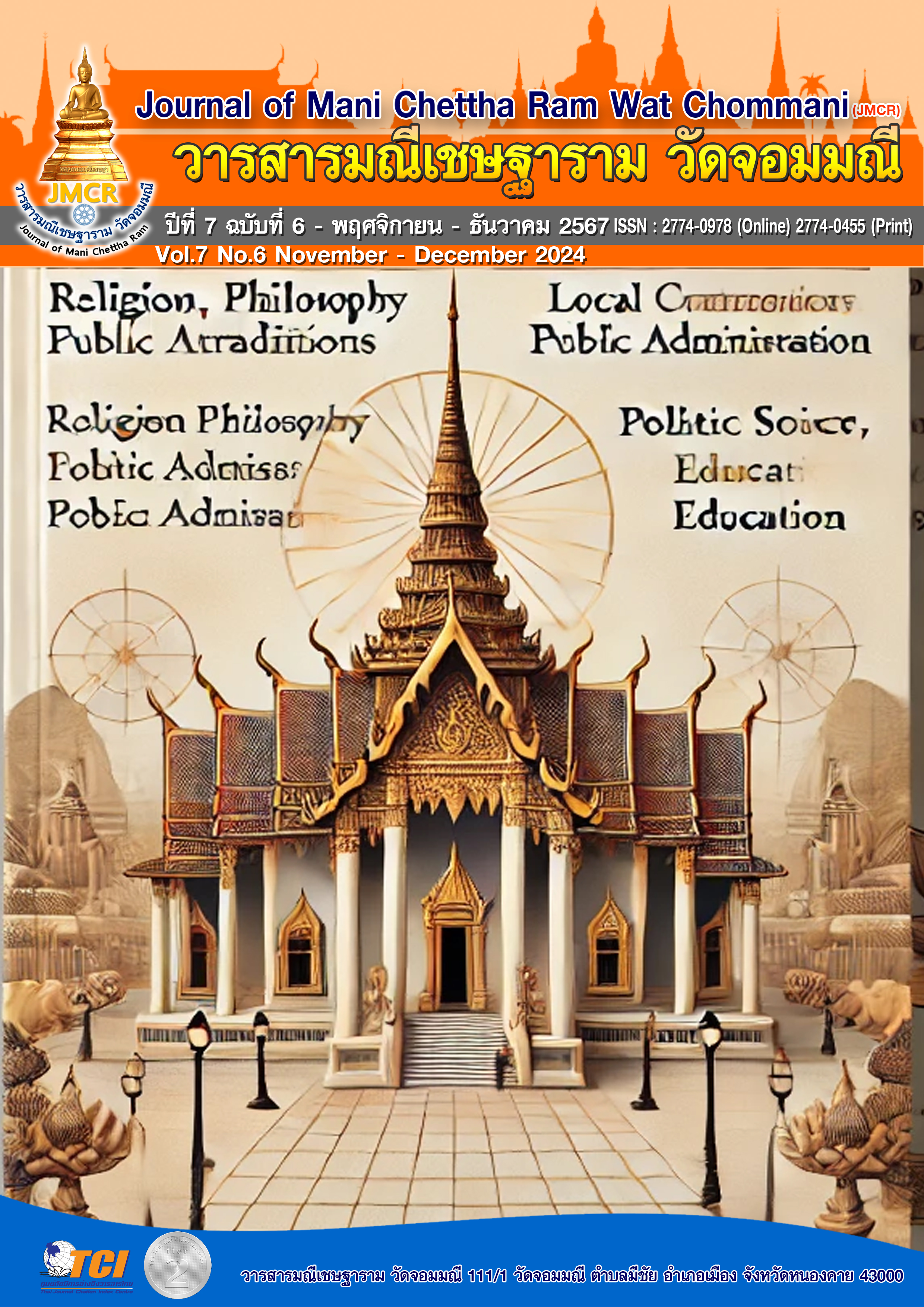ACADEMIC LEADERSHIP OF EDUCATIONAL ADMINISTRATORS IN THE DIGITAL AGE
Keywords:
Academic leadership, Digital age, Educational administratorsAbstract
The purpose of this article is to study and analyze the academic leadership of educational administrators in the digital era, particularly in the context of technological changes that significantly impact education management. Educational administrators play a crucial role in driving education to keep pace with the transformations of the modern world. Studying academic leadership in this context will help to understand the essential characteristics and skills that educational administrators need to lead their organizations effectively towards achieving educational goals in the digital age. Therefore, it is necessary for educational administrators to adapt their attitudes and management concepts to align with the ongoing changes, in order to enhance the academic work of their institutions using digital technology. This technology serves as a vital mechanism for achieving educational objectives, ultimately leading to improved educational quality and quality learning outcomes for students
References
กระทรวงศึกษาธิการ. (2556). คู่มือการบริหารโรงเรียนในโครงการพัฒนาการบริหารรูปแบบนิติบุคคล. กรุงเทพมหานคร : โรงพิมพ์ชุมนุมสหกรณ์การเกษตรแห่งประเทศไทย จำกัด.
ดวงนภา เตปา. (2562). การพัฒนานาคู่มือการบริหารงานวิชาการของโรงเรียนบ้านท้าวบุญเรืองอำเภอหางดง จังหวัดเชียงใหม่. ใน วิทยานิพนธ์ครุศาสตรมหาบัณฑิต. มหาวิทยาลัยราชเชียงใหม่.
ปกรณ์ ศรีสกุล. ภาวะผู้นำในโลกดิจิทัล. เรียกใช้เมื่อ 11 สิงหาคม 2567 จาก : https://today.line.me/th/pc/article/Leadership+in+Digital+Era.
ปนัดดา นกแก้ว. (2562). ทักษะชีวิตและอาชีพในศตวรรษที่ 21 ของนักเรียนระดับชั้นมัธยมศึกษา ปีที่ 3 จังหวัดสมุทรปราการ. ปริญญานิพนธ์ศึกษาศาสตรมหาบัณฑิต. มหาวิทยาลัยเทคโนโลยีราชมงคลธัญบุรี.
ประเวศน์ มหารัตน์สกุล. (2550). ภาวะผู้นํา: ความเป็นไปในสังคมไทยและวิธีการแก้ไขกรุงเทพมหานคร: หมอชาวบ้าน.
พระมหาธีรเพชร มาตพงษ์. (2561). การสังเคราะห์รูปแบบการบริหารวิชาการโรงเรียนพระปริยัติธรรมแผนกสามัญศึกษา. ใน ดุษฎีนิพนธ์ปรัชญาดุษฎีบัณฑิต. มหาวิทยาลัยสยาม.
พรพิพัฒน์ ตั้งจิตรวัฒนากุล. (2559). แนวทางการพัฒนาภาวะผู้นำแบบให้บริการของผู้บริหารสถานศึกษาระดับมัธยมศึกษา. วิทยานิพนธ์การศึกษาดุษฎีบัณฑิต สาขาบริหารการศึกษา. มหาวิทยาลัยนเรศวร.
มัทนา วังถนอมศักดิ์. (2550). รูปแบบแรงจูง ใจในการปฏิบัติงาน. วิทยานิพนธ์ปรัชญาดุษฎีบัณฑิต สาขาการบริหารการศึกษา. มหาวิทยาลัยศิลปากร.
ลือชัย ชูนาคา. (2558). รูปแบบการพัฒนาสมรรถนะการบริหารวิชาการของผู้บริหารสถานศึกษาสังกัดสำนักงานเขต พื้นที่การศึกษาประถมศึกษา. ใน วิทยานิพนธ์การศึกษาดุษฎีบัณฑิตสาขาบริหารการศึกษา. มหาวิทยาลัยนเรศวร.
วิทิตา สุขทั่วญาติ. (2557). รูปแบบการพัฒนาภาวะผู้นำทางวิชาการในทศวรรษหน้าของผู้บริหารสถานศึกษา สังกัด สำนักงานเขตพื้นที่การศึกษามัธยมศึกษา. ใน วิทยานิพนธ์การศึกษาดุษฎีบัณฑิต สาขาบริหารการศึกษา. มหาวิทยาลัยนเรศวร.
สุกัญญา แช่มช้อย. (2561). การบริหารสถานศึกษาในยุคดิจิทัล. กรุงเทพมหานคร: จุฬาลงกรณ์ มหาวิทยาลัย.
Flanagan, L., & Jacobsen, M. (2003),Technology leadership for the twenty-first century principal, Journal of Educational Administration, 41(2).
Glickman, C.D. (2007), Super vision and instructional leadership : A developmental approach (7th ed.). Boston: Pearson.
Kerdtip, C. (2006). Development model of education technology leadership foschool administrators under the office of basic education commission Insouthern Thailand. Doctoral Dissertation. Thailand: Songkla University.
Nak Ai, N. (2006). The factors of E-Leadership characteristics and Factors affecting E-Leadership effectiveness for basic education principals. Doctoral Dissertation. Bangkok: Srinakharinwirot University.
Polly, D. (2010). Preparing teachers to integrate technology effectively: The case of higher order thinking skills (HOTS). Chapter to appear in S.D'Augustono (Ed.).
Wannasri, J.(2010). Academic leadership of school administrators. Journal of Education. (Naresuan University, 12(1), 35-49.




